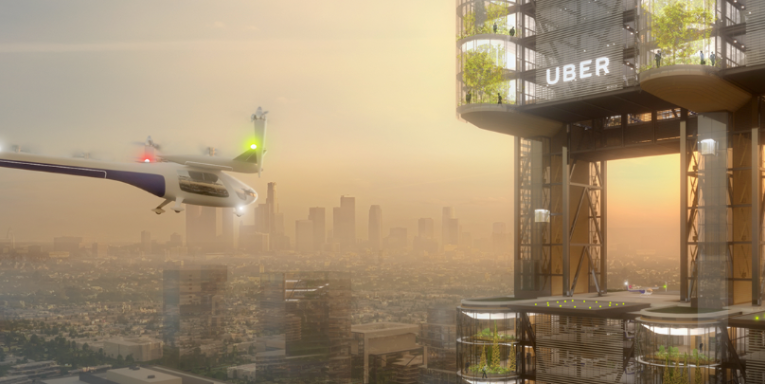Summary:
- Uber has ambitions to bring another level of disruption to urban transportation and bring a new competitor to its ground based ride-share model in the skies above our most congested global cities;
- Uber Elevate claims to be 'the future of urban air transport' and has already partnered with Dallas and Los Angeles as 'launch cities' to test the Uber Air model;
- It has now shortlisted Japan, India, Australia and Brazil as the potential nations that could be home to this third launch city;
- Uber Elevate is inviting conversations with stakeholders across major cities in these countries and will announce the chosen city "within the next six months".
Uber Elevate will effectively take the ride-sharing model to the skies above our biggest cities, ferrying commuters around cities in a four-seater air taxi while building major skyports above motorways to facilitate the system. Uber is not alone in its thinking though and hundreds of millions of dollars is already pouring into technological start-ups working to build new small, passenger-carrying aircraft with an increasing number pursuing various approaches to "electric, vertical take-off and landing" (Evtol) technology.
The opportunity is clear and Uber Elevate's marketing material provides clear evidence on the value of flying to ease ground congestion. It is obvious that every day, millions of hours are wasted on the road worldwide, but apparently last year the average San Francisco resident spent 230 hours commuting between work and home - that's half a million hours of productivity lost every single day.
The statistics keep coming. In Los Angeles and Sydney, residents spend seven whole working weeks each year commuting, two of which are wasted unproductively stuck in gridlock. In many global megacities, the problem is more severe: the average commute in Mumbai exceeds a staggering 90 minutes!
Uber Elevate claims to be 'the future of urban air transport' and has already partnered with Dallas and Los Angeles as 'launch cities' to test the Uber Air model and allow for a balance between focus and city diversity that it says "will set the service up for long-term success". It hopes to be operating demonstrator flights as early as 2020 and begin commercial operations in 2023 and to achieve this has assembled a network of partners that includes vehicle manufacturers, real estate developers, technology developers and more.
[perfectpullquote align="full" cite="" link="" color="" class="" size=""] READ OUR PREVIOUS UBER ELEVATE INSIGHT...
"It's time to disrupt the disruptors" - Uber Elevate has ambitious plans to take us all into the air
[/perfectpullquote]
It has been known it has been seeking an international city as the third launch partner and last week it confirmed it had shortlisted Japan, India, Australia and Brazil as the potential nations that could be home to this third launch city. Uber Elevate is now inviting conversations with stakeholders across major cities in these countries, and says it will announce the chosen Uber Air international city "within the next six months".
There are numerous candidates. France is home to the company's Advanced Technology Center in Paris, the city where Uber was first born. In Japan, home of one of the world's most enviable public transit systems and a world leader in the technology and automotive industries, Tokyo and Osaka are obvious options, while in India, Mumbai, Delhi, and Bangalore are some of the most congested cities in the world, where traveling even a few miles can take over an hour and where the Uber Air model offers the potential to help create a transportation option that goes over congestion, instead of adding to it.
In Australia, Uber Elevate says it has already had "several positive conversations" with local policymakers and the Australian Civil Aviation Safety Authority and says Australia has "already taken significant steps to embrace the future of urban aviation". Meanwhile, in Brazil the likes of Rio de Janeiro and the state of São Paulo are already key ridesharing markets globally, and also happen to be some of today's most active helicopter markets, indicating clear demand for urban aerial ridesharing.
Uber Elevate says it has established a criteria framework to select this third city, anchored around three priority principles:
- Sizeable market - it is looking for large, polycentric markets with a strong and present need for innovative transportation solutions, and with a metropolitan population over one million people;
- Local commitment - it will work with federal, state, and local governments from day one, in addition to members of the community we hope to serve - real estate developers, zoning commissions, city councils, and neighbourhoods. It is looking for markets that are locally committed to bringing Uber Air there so it can collaborate closely in the coming years;
- Enabling conditions - Uber Air relies on multimodal, efficient operations that are seamlessly integrated with a robust Uber ground network.